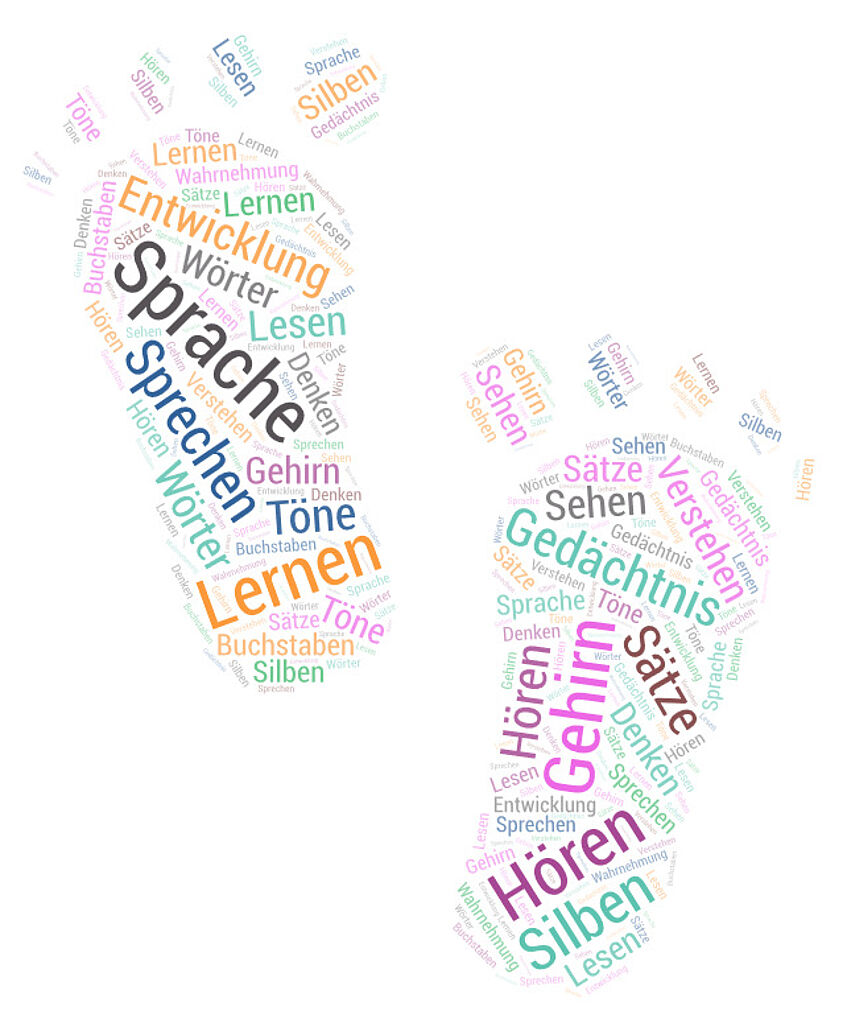Language acquisition

Language acquisition
How we form the sentences of our mother tongue follows a very complex pattern. We usually only become aware of this when we learn a foreign language and suddenly have to learn new rules of composition. How do we learn such complex patterns?
Even toddlers produce mostly grammatically correct sentences - long before they can calculate or ride a bike. In contrast, we often find it difficult to learn another language in adulthood. Why is that so?
We investigate the learning of linguistic rules, for example, with the help of so-called "artificial grammars". An artificial grammar consists of only a few elements (tones, syllables or fantasy words) and rules that determine how the elements are arranged. With such mini-languages, even small infants can recognize recurring patterns within a few minutes. We want to understand how this ability develops in the course of human life and what brain processes occur.
Learning words is also more complicated than it seems at first glance. This is because not all words are the same. There are words for visible, audible and tactile objects/occurrences such as ball, song and wind. Some words are abstract and can only be understood by linking them to other notions, such as justice. How do we manage to integrate all this into our mental lexicon? We want to find out how exactly our different sensory experiences and ideas are linked to words.
